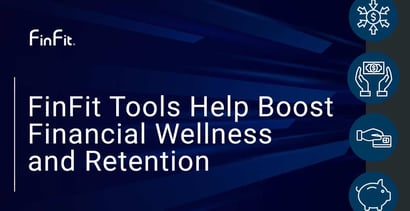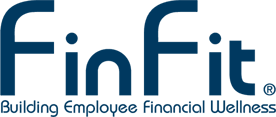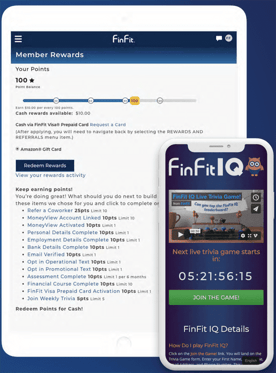
In a Nutshell: FinFit provides employers financial wellness tools and services to promote better saving habits among their employees. The platform also offers financial counseling that helps users save and gain early access to their paycheck. Employers that use the service report higher workforce retention rates, and employees often see a boost in their financial status and experience lower stress levels.
The unemployment rate in the US continues to inch lower since the COVID-19 pandemic pushed it to nearly 15%. That rate stands at around 3.5%, one of the lowest the country has seen since 1970.
That is good news for workers who have to value job stability. But employers now also need to up the ante to retain or hire new talent in a continuously shrinking talent pool.
Training and onboarding cost businesses valuable time and money. Their best option is to retain the workers who have company experience. But sometimes, even wage increases are not enough in a competitive job market.
More than half of Americans live paycheck to paycheck today. Workers seek more value not just in salary, but also in benefits. Employers looking to retain their talent often have to step up to the plate with tools to help workers grow — both at their job and at home.

FinFit aims to help solve those issues for both employers and employees. Employers can use FinFit to help employees develop financial stability beyond simply raising wages in the face of high inflation.
FinFit connects to business payroll and can provide employees with a spending and savings accounts, one-on-one financial coaching, and early access to wages.
FinFit ultimately creates better financial situations for employees and offers valuable banking services to underserved populations. In turn, an employee can achieve better mental health and view their employer as a stable, loyal fit.
“Our mission is to work with companies and their employees to build a financially healthier workforce,” FinFit Chief Wellness Officer Charles Lattimer said. “When we do that, we reduce stress, and that has a material impact on things like employee retention.”
Creating a Financially Healthy Workforce
More than half of Americans would not be able to pay an unexpected $1,000 bill to fix their car, cover an emergency visit to the doctor, or pay for home repairs from a recent storm. These are not normally expenses that can be postponed.
Most Americans have to rely on credit cards or personal loans to pay unexpected bills, pushing them further into debt. A cornerstone of FinFit’s offerings is its emergency savings account that seamlessly connects to payroll.

Money is automatically taken out of employee paychecks and deposited into the account creating an emergency fund for account holders to use when they need the money most. In addition to the automatic savings, the platform provides employees with financial counseling. It’s how FinFit helps people subconsciously prepare for the worst.
“Part of that is ensuring that all employees have access to financial counseling,” Lattimer said. “When they are hit with either unexpected financial events, we need to make sure that we take those moments a lot more seriously.”
FinFit promotes positive financial behavior with its rewards program. Users accumulate points through actions such as taking a financial course or completing a weekly financial quiz. Users redeem those points for cash rewards through FinFit.
FinFit’s financial wellness platform offers employees unlimited one-on-one financial coaching as further support. Coaching sessions are private, removing an embarrassment layer and encouraging users to seek out help on a regular basis.
FinFit works with payroll providers as a strategic partner. It incorporates within the payroll to address every part of the workforce so every employee can take advantage of the platform’s solutions to short-term liquidity challenges.
“Once you solve the short term challenges, you really open up an opportunity to bring someone on a financial wellness journey,” Lattimer said.
Incremental Changes Impact Employers and Employees
Around 300,000 clients use FinFit’s platform, which currently serves more than 8 million workers across the country, making it the largest payroll-connected financial wellness company in the country.
FinFit said members are so pleased with the platform that, when they leave their current employer, they ask their new employer to look into signing up. But even if their new employer doesn’t sign up, members who leave their previous job only have to connect their new payroll to their account to have access to all the features and benefits.
The benefit is two-fold for employers, who see a big boost in employee retention. FinFit’s data showed that retention among salaried employees, who are more engaged in their financial wellness journey, increased by 18%, while retention among hourly employees increased by 29%.
Benefits in FinFit’s system include the spending and savings account the company launched this year. The account brings early wage access for employees who need help paying bills.
Early wage access helps members avoid overdraft fees when they need to make payments a few days before their paycheck is deposited into their account. Avoiding overdraft fees stops a cycle of getting into debt right before payday.
Early wage access provides up to 50% of the wages employees have earned before payday and is completely free to use. The service then pushes members to use auto deductions to save more without even knowing they’re saving.
“What we provide is an immediate off-ramp from that madness,” Lattimer said. “We provide responsible tools that are always supported with a positive savings behavior plan.”
Providing Services Backed by Research and Results
FinFit got its start in 2015, during the cutting-edge of the financial wellness movement. FinFit was one of the first to put an emphasis on financial wellness through its services.
The holistic platform helps people make beneficial strides to build their savings from every angle. The company partners with research companies to learn more ways to help members.
“If you can get somebody to change their behavior just a little bit, it can even be saving $10 a paycheck, you get an immediate stress reduction from starting that cycle,” Lattimer said.

FinFit’s research shows that the number one stressor people face is tied to their money. That impacts the rate of turnover and retention in workplaces. FinFit said the company excels at showing members the next best action when in a financial crisis.
“What we found is if you simply start on a financial wellness journey, you’re going to reduce stress, but your financial condition may not have changed at all,” Lattimer said. “But if you continue working on it, psychologically, it really is half the job.”
FinFit aims to continue supporting and seeking out partners to provide members with better services. The company is partnering with Optima Health to make its platform available to 340,000 Medicaid recipients.
FinFit continues to research and partner with institutions to design an analytics platform that looks at financial data that links to its health programs so it can better understand health outcomes.
“Over the next few years, we’ll be leading the industry in terms of connecting social determinants of health impacts and positive health outcomes to financial wellness,” Lattimer said. “We will then make a case for wide-scale healthcare cost reduction.”






